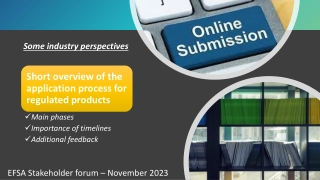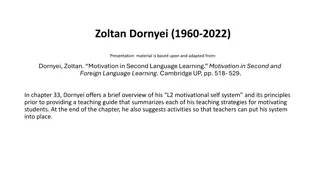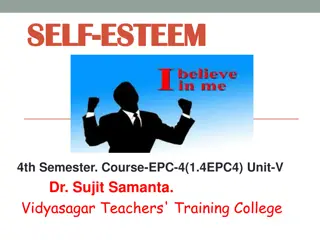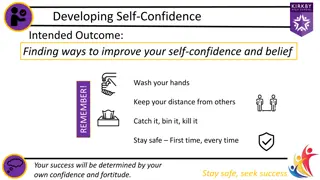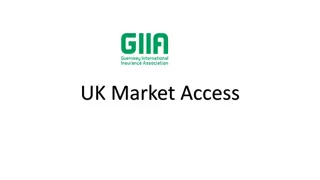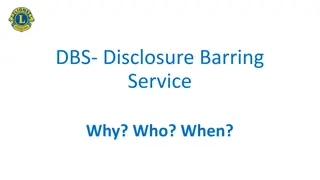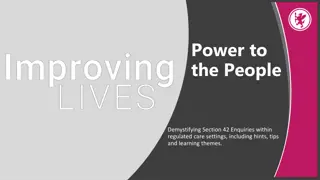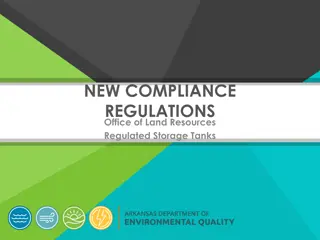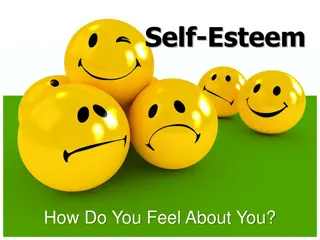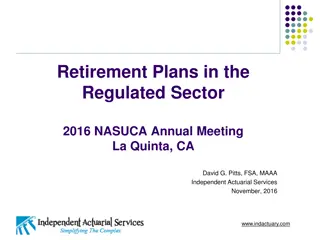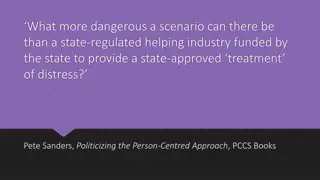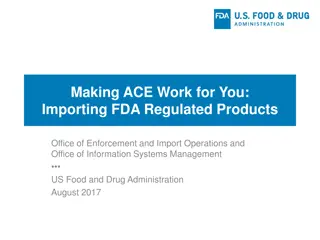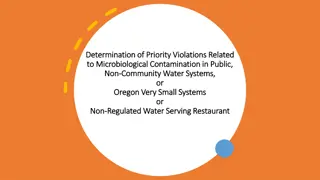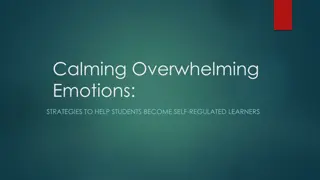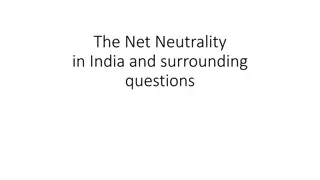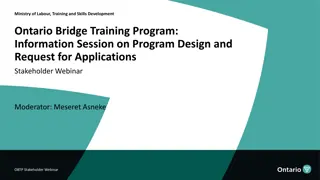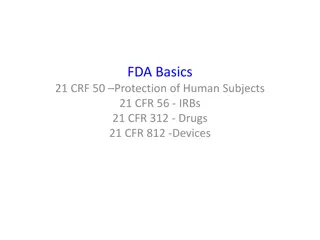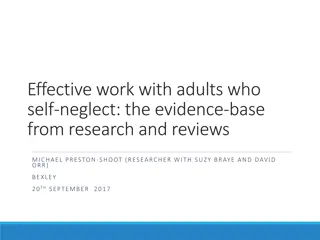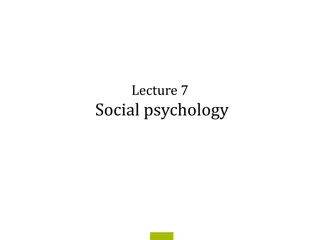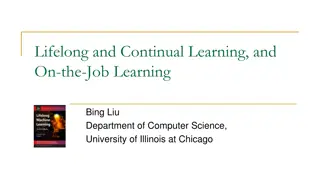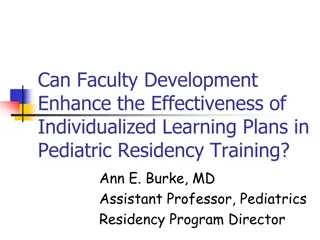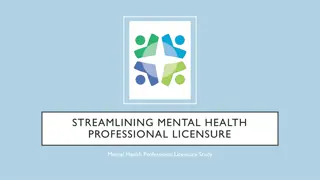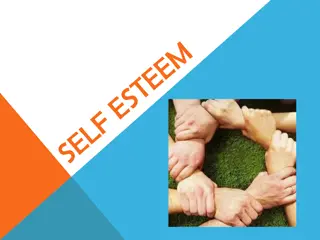Digital Citizenship: Self-Image, Social Media, and Self-Esteem
Explore the impact of social media on self-image and self-esteem. Learn about the influence of filters and media on body perception. Reflect on self-assessment and take-home activities to improve self-confidence.
3 views • 11 slides
Insights into Regulated Product Application Process
Gain valuable perspectives on the phases and importance of timelines in applying for regulated products. Explore feedback and suggestions for optimizing the process. Learn about EFSA's role and stakeholders' insights.
0 views • 10 slides
Understanding Self-Worth in Children: Building a Strong Foundation
Explore the importance of self-concept, self-esteem, and self-worth in children's development. Learn how parents can positively impact a child's self-perception and self-value through nurturing experiences. Discover the key sources influencing children's self-worth and the critical role of early lif
0 views • 30 slides
Enhancing Geography Learning Through Metacognitive Retrieval Practice
Students in Geography can improve their learning by applying metacognitive retrieval practice techniques. Retrieval practice helps activate prior knowledge, enhances memory retention, and fosters critical thinking skills. Metacognition, which involves planning, monitoring, and evaluating one's learn
1 views • 19 slides
Enhancing Language Learning Motivation: Insights from Zoltan Dornyei's L2 Motivational Self System
Zoltan Dornyei's L2 Motivational Self System emphasizes the dynamic interplay of motivation, cognitive, and emotional factors in language learning. By addressing students' ideal self, ought-to self, and learning environment, this approach facilitates creating, generating, maintaining, and encouragin
0 views • 13 slides
Understanding Self-Esteem: Meaning, Importance, and Types
Self-esteem is how we perceive our worth and value. High self-esteem leads to confidence and positivity, while low self-esteem can result in self-doubt and negative emotions. Self-esteem impacts mental health, behavior, decisions, relationships, and overall success in life. Recognizing and nurturing
2 views • 15 slides
Understanding Self-Esteem and Ways to Improve It
Self-esteem is our perception of ourselves, impacting how we navigate life. Healthy self-esteem fosters positivity, while low self-esteem can be detrimental. Various factors, like childhood experiences, contribute to low self-esteem, but steps can be taken to improve it. Building positive relationsh
0 views • 14 slides
Understanding the Self: Psychology's Focus and Implications
The field of psychology has long been intrigued by the concept of self, exploring its importance to well-being, self-esteem, and brain localization. Research reveals how excessive optimism, self-bias, and blindness to incompetence can impact self-esteem. Contrasting individualist and collectivist cu
1 views • 41 slides
Building Self-Confidence: Key Steps and Benefits
Understanding self-confidence, its importance, and how to develop it can lead to enhanced resilience, motivation, reduced fear and anxiety, and a stronger sense of self. Self-confidence allows for confident behavior, while lack of it can lead to self-doubt and avoidance of risks. Learning to embrace
0 views • 7 slides
Considerations for Guernsey Regulated Insurance Providers Issuing Policies in the UK
This presentation outlines key issues for Guernsey regulated insurance entities when issuing policies on a non-admitted basis in the UK. It emphasizes the differences between the regulatory regimes in Guernsey and the UK, highlighting challenges and recommendations while comparing solvency models, r
2 views • 9 slides
Developing a Self-Care Action Plan for Overall Well-Being
Self-care involves deliberate activities to nurture mental, emotional, physical, and spiritual health, yet it is often neglected. This guide explores the essence of self-care, emphasizes the importance of building a personalized self-care action plan, and provides insights into taking care of your b
0 views • 19 slides
Understanding DBS (Disclosure & Barring Service): Purpose, Process, and Categories
The Disclosure and Barring Service (DBS) is a critical aspect of ensuring safe recruitment decisions, particularly for roles involving children and vulnerable adults. This service helps organizations across sectors in England and Wales identify unsuitable candidates by providing access to criminal r
0 views • 14 slides
Enhancing Self-Confidence for Professional Success
Understanding the importance of self-confidence in the workplace is crucial for personal growth and career advancement. Self-confident individuals trust their abilities, maintain a sense of control over their lives, and have realistic expectations. This summary delves into the characteristics of sel
0 views • 13 slides
Understanding Power Supplies and Rectifiers in Electrical Systems
Power supplies play a crucial role in converting AC power to DC power, with two main types being unregulated and regulated. Regulated power supplies consist of essential components like a step-down transformer, full-wave rectifier, filter circuit, and voltage-regulating circuit. Rectifiers are devic
0 views • 25 slides
Enhancing Geography Learning Through Metacognitive Strategies and Retrieval Practice
Utilizing metacognition and retrieval practice can significantly improve students' learning in Geography by facilitating the activation of prior knowledge, enhancing memory retention, and promoting self-regulated learning. Metacognition involves planning, monitoring, and evaluating one's learning pr
0 views • 19 slides
Understanding Section 42 Enquiries in Regulated Care Settings
Demystify Section 42 enquiries in regulated care settings with insights, tips, and learning themes. Learn about the safeguarding service, good enquiry practices, incorporating personal safeguarding, recent enquiry themes, tools, and more. Discover how the service works, who can undertake enquiries,
0 views • 20 slides
Compliance Regulations for Regulated Storage Tanks
This document outlines the compliance regulations for regulated storage tanks focusing on inspection requirements including visual checks, removal of debris, and monitoring equipment to ensure safe operations. It specifies the frequency of inspections and maintenance tasks for spill prevention and r
0 views • 16 slides
Enhancing Self-Regulation for Formative Assessment through Social and Emotional Learning
Explore the significance of self-regulation in formative assessment, understand key concepts like self-control, emotional competence, and perseverance. Discover actionable strategies to implement self-regulation interventions with students and train other adults effectively. Future orientation and s
0 views • 25 slides
Understanding Mindful Self-Judgment and Its Role in Mental Health
Mindful self-judgment is a complex concept that involves balancing self-awareness and self-compassion. While nonjudgment is a key aspect of mindfulness practices, there is a debate on whether mindful self-judgment can be appropriate and functional in certain circumstances. Researchers like June Pric
2 views • 46 slides
Understanding Self-Esteem: Highs and Lows
Self-esteem is the judgment we hold about ourselves, shaped by experiences and relationships. High self-esteem individuals embrace new encounters with confidence and positivity, while low self-esteem individuals struggle with self-doubt and criticism. Recognizing signs of low self-esteem is crucial
0 views • 11 slides
Insights into Retirement Plans in the Regulated Sector
Explore the dynamics of Defined Benefit (DB) and Defined Contribution (DC) retirement plans in the regulated sector, focusing on trends, key considerations, per capita costs, and the complexities of managing DB costs. Learn about the shift from DB to DC plans, derisking strategies, and the impact on
0 views • 20 slides
Using Technology for Assessment and Feedback in Teaching Excellence Initiative
Self-regulated learners in higher education benefit from active involvement in assessment and feedback processes, leading to deeper learning. Good assessment and feedback practices promote self-regulation by engaging students in setting goals, making evaluative decisions, generating feedback, and re
0 views • 6 slides
Challenging State-Regulated Mental Health Approaches
The text questions the effectiveness and ethics of state-regulated mental health treatments, dismissing the biological approach as ineffective. It emphasizes the importance of listening, challenges the diagnostic labeling of conditions like schizophrenia, and advocates for understanding what has hap
0 views • 18 slides
ACE Guide: Importing FDA Regulated Products
Access resources and information to successfully import FDA regulated products using ACE. The Office of Enforcement and Import Operations and Office of Information Systems Management at the US Food and Drug Administration provide guidance in this August 2017 publication.
0 views • 157 slides
Boosting Your Child's Self-Esteem & Confidence in Parenting Workshop Series
Understanding self-esteem in children is crucial for their emotional development. Healthy self-esteem leads to positive behaviors, while low self-esteem can result in negative self-perceptions. Recognizing signs of healthy and unhealthy self-esteem allows parents to support and nurture their child's
0 views • 11 slides
Common Regulated Diseases in Imported Fruit and Vegetables
Imported fruit and vegetables can carry regulated diseases such as Citrus Black Spot, Citrus Scab, and Citrus Canker. These diseases affect citrus fruits and peppers, causing scabs, spots, and cankers, making the produce unmarketable. The pathogens causing these diseases have been intercepted in imp
0 views • 12 slides
Guidelines for Water Contamination Monitoring in Public and Non-Regulated Systems
Detailed information on priority violations related to microbiological contamination in public, non-community, and regulated water systems, outlining standards for approved water sources, sampling requirements, and monitoring compliance to ensure water safety.
0 views • 14 slides
Strategies for Developing Self-Regulated Learners
Understanding self-regulation is crucial for students to manage emotions, impulses, and behavior effectively. It involves developing skills like focused attention, managing emotions, delaying gratification, and more. Stress can impact brain development negatively, leading to long-term effects like s
1 views • 36 slides
Understanding Net Neutrality in India: Key Concepts and Regulations
Net neutrality in India ensures equal access to online content without discrimination. Telecom Service Providers are regulated to prevent differential tariffs for data services. Different stakeholders like consumers, TSPs, OTT service providers, and the government play crucial roles. Net neutrality
0 views • 10 slides
Ontario Bridge Training Program Stakeholder Webinar Overview
Ministry of Labour, Training, and Skills Development in Ontario conducted a stakeholder webinar to present the Ontario Bridge Training Program (OBTP). The webinar outlined the program's purpose, objectives, design, and the upcoming Request for Applications. It provided insights into the submission p
0 views • 36 slides
Understanding FDA Regulations in Clinical Research
FDA regulations in clinical research cover the protection of human subjects, IND/IDE requirements, risk determinations, application processes, and what falls under FDA regulation. It distinguishes between FDA-regulated activities and those not regulated, such as medical record reviews. The scope inc
0 views • 31 slides
Insights on Regulation, Market Failures, and Capture Theory
Disciplined monopolies internalize externalities and enhance social welfare, but small groups with large potential benefits often drive regulation for self-interest. Capture theory suggests regulatory capture by firms over time, leading to favoritism and high rates of return for regulated industries
0 views • 23 slides
Understanding Self-Neglect in Adults: Challenges and Research Insights
This content delves into the complex issue of self-neglect in adults, covering its definition, key challenges, and the research evidence available. It explores the various aspects of self-neglect, including neglect of self-care, domestic environment, and refusal of services. The challenges associate
0 views • 39 slides
Companies (Cost Records and Audit) Amendment Rules 2014 Overview
The Companies (Cost Records and Audit) Amendment Rules 2014, presented by CMA Harshad S. Deshpande, cover the applicability of cost records and cost audit for companies in regulated and non-regulated sectors. The rules specify the class of companies engaged in production or services that must mainta
1 views • 41 slides
Understanding the Self in Social Psychology
Delve into the concept of the individual and the self in social psychology, exploring how identities have evolved historically and the distinction between collective and individual selves. Learn about self-awareness, Wundt's differentiation of I and me, and Higgins' self-discrepancy theory, shedding
0 views • 84 slides
Lifelong and Continual Learning in Machine Learning
Classic machine learning has limitations such as isolated single-task learning and closed-world assumptions. Lifelong machine learning aims to overcome these limitations by enabling models to continuously learn and adapt to new data. This is crucial for dynamic environments like chatbots and self-dr
0 views • 32 slides
Enhancing Individualized Learning Plans in Pediatric Residency Training
The study focuses on whether faculty development intervention can enhance the effectiveness of Individualized Learning Plans (ILPs) in pediatric residency training. It aims to improve faculty and trainee experiences with ILPs, including increasing faculty perception of ILP importance, self-directed
0 views • 16 slides
Understanding Regulated Mental Health Services and Practice Modalities
Explore the nuances of regulated mental health services (RMHS) and practice modalities within the mental health professions. Delve into the distinct scopes of practice and qualification criteria of various mental health professions, such as Applied Behavior Analysis, Marriage and Family Therapy, and
0 views • 10 slides
Correlation Between Self-Efficacy and Test Performance Based on International Assessment Data
Explore the correlation between self-efficacy, readiness to learn, intrinsic and extrinsic motivation with test performance using data from international assessments like PISA and PIAAC. Learn about the limitations of linear models in psychological research and the debate around self-efficacy accord
0 views • 32 slides
Boosting Self-Esteem: Benefits and Tips for Improvement
Understanding self-esteem, its benefits, and risks of low self-esteem are essential for personal growth. Developing high self-esteem can lead to increased self-respect, goal achievement, and willingness to try new things. On the other hand, low self-esteem can make individuals vulnerable to peer pre
0 views • 10 slides

